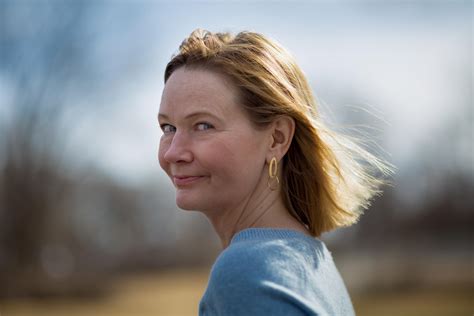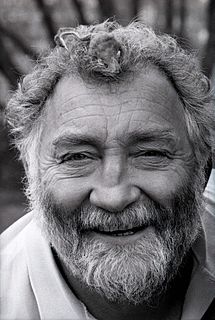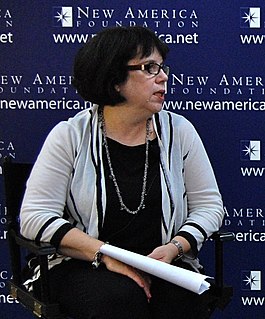A Quote by Virginia Postrel
Even before Sputnik, scientists and policy makers worried that not enough Americans were studying science.
Related Quotes
The IPCC 'policy summaries,' written by a small group of their political operatives, frequently contradict the work of the scientists that prepare the scientific assessments. Even worse, some of the wording in the science portions has been changed by policy makers after the scientists have approved the conclusions.
Foreign policy is now a huge field. It isn't just people who are studying political science. There are so many aspects to it in terms of understanding hard science for people who are studying climate change, or people who are interested in health policy or food security, or people who care about education.
I know that sometimes when you are really worried about something, it ends up not being nearly as bad as you think it will be, and you get to be relieved that you were just being silly, worrying so much over nothing. But sometimes it is just the opposite. It can happen that whatever you are worried about will be even worse than you could have possibly imagined, and you find that you were right to be worried, and even that, maybe, you weren't worried enough.
I don't think any administration, when they come in, thinks that their job is to tell the scientists what the science looks like or to be quiet about the science. Scientists need to remain true and not allow science to be politicized. Scientists are not politicians, and no politician should consider themselves to be a scientist.
In the late 60s, 70s and possibly early 80s, social scientists were interested in researching the diffusion of innovation and studying the link between applied research and policy and program development. Recently there has been less interest in these issues and we feel that this interest must be rekindled.
China is attempting the death-defying feat, which no one has attempted in the history of the world, which is to move a billion people out of poverty. When I speak to Chinese policy-makers, the thing that annoys them the most about Western policy-makers is that they're not given any credit for anything.
Beyond the Einsteins and Darwins, most scientists don't have chroniclers. Einstein and Darwin were geniuses - that helps. Many scientists do amazing stuff, but it just disappears into footnotes and dusty medical journals. If I were masochistic enough, I could spend the rest of my life rescuing scientists. Most of them aren't natural self-promoters.
The private motives of scientists are not the trend of science. The trend of science is made by the needs of society: navigation before the eighteenth century, manufacture thereafter; and in our age I believe the liberation of personality. Whatever the part which scientists like to act, or for that matter which painters like to dress, science shares the aims of our society just as art does.





































